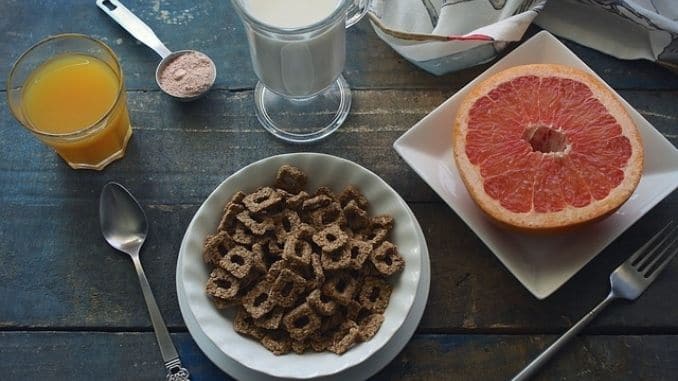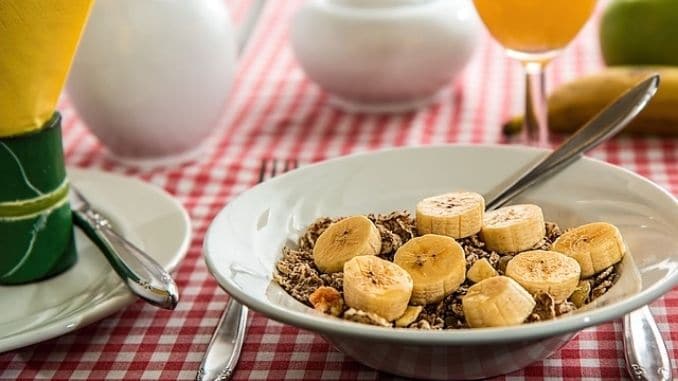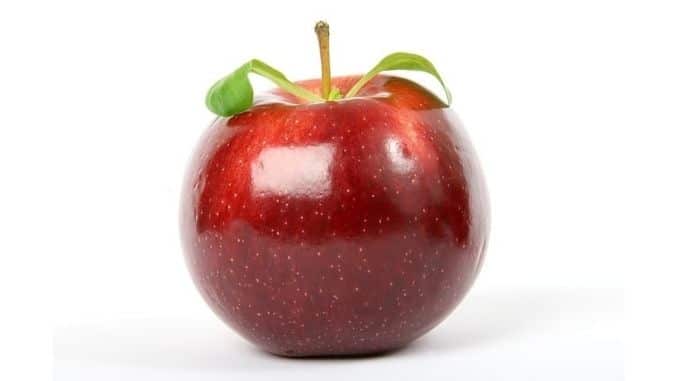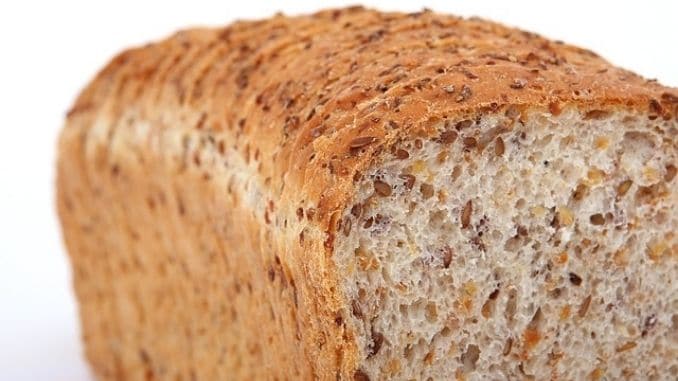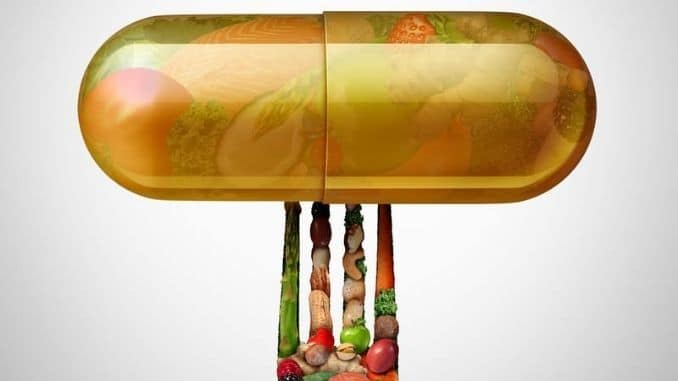
Do you suffer from digestive issues like constipation and diarrhea? Are you often hungry between meals? Is your cholesterol high? Are you dragging through your days, lacking energy?
Believe it or not, these are all signs that you may not be getting enough fiber in your diet ― and you’re not alone. According to a recent study, only about 5 percent of Americans are meeting the recommended daily fiber intake — a situation that has been referred to as a “public health concern.”
We think we’re getting enough, but it’s difficult to measure the actual amounts, and most standard Western diets don’t include a lot of fiber-rich items.
The Institute of Medicine recommends from 19 to 38 grams, depending on age and gender, but according to researchers, Americans fall “exceedingly short” of these recommendations, mostly because they’re confused about which foods supply fiber and because they’re on diets — even including the gluten-free diet — that are inherently low in fiber.
It’s not always easy to change your diet but, fortunately, there are several safe options available when it comes to fiber supplements. If you’re experiencing symptoms of low fiber, these supplements can help. The question then becomes, which one is best for you?
What Is Fiber and Why Do We Need It?
Dietary fiber, also called roughage or bulk, includes the parts of plant foods that you can’t digest or absorb. Whereas the body breaks down and uses for fuel things like fats, proteins, and carbohydrates, fiber passes mostly intact through the digestive system and out of the body.
In general, when talking about fiber, we focus on two main types:
- Soluble fiber: This type dissolves in water and forms a gel-like material in the gut. It softens stool so that it travels easily through the digestive system and helps you feel full so you’re less likely to overeat. It also binds to cholesterol and sugar, helping prevent their absorption and supports good bacteria in the gut. Eat more citrus fruits, apples, carrots, oats, peas, beans, barley and avocados to get more of this type of fiber.
- Insoluble fiber: This type does not dissolve in water, so it adds bulk to the waste in the digestive system, helping to keep everything moving and preventing constipation. Find this fiber in whole grains, wheat bran, nuts, seeds, potatoes, and vegetables.
Many foods high in fiber contain both types, and both are necessary for optimal health.
What Are the Benefits of Fiber?
Fiber benefits our health in many ways:
- Weight management: If you want to lose weight or maintain the weight you have, getting enough fiber is critical. Both types help you feel full after meals so that you’re less likely to snack. Soluble fiber lowers fat absorption and slows down digestion insoluble fiber fills up space in the stomach and intestines so that you eat less.
- Cholesterol levels: High cholesterol is believed to be a risk factor for heart disease. A high-fiber diet can help reduce cholesterol levels. Soluble fiber, in particular, prevents some dietary cholesterol from being digested so that it passes harmlessly out of the system.
- Blood sugar levels: Millions of people suffer from type 2 diabetes. Getting more fiber, however, can help you avoid the disease because it breaks down more slowly in the digestive system, resisting blood sugar spikes. Soluble fiber also slows down the digestion of carbohydrates, which keeps blood sugar steady.
- Gut health: The digestive system contains a large community of bacteria — some good and some not so good. Soluble fiber helps “feed” the good bacteria, keeping the microbiome healthy.
- Constipation: Both types of fiber help maintain a healthy digestive system, reducing the risk of constipation. Soluble fiber makes the stool easier to move through the intestines, and insoluble fiber absorbs fluid and other materials in the gastrointestinal tract, speeding up waste processing.
- Disease risk: Studies have shown that a high-fiber diet can help reduce the risk of heart disease, diabetes, obesity, hemorrhoids, irritable bowel syndrome (IBS) and colon cancer.
What Are the Best Sources of Fiber?
A recent study indicated that those who eat at least 25 to 29 grams or more of dietary fiber per day were less likely to develop a number of diseases than those who got less than that. Results showed a 15 to 30 percent decrease in all-cause and cardiovascular-related death and 16 to 24 percent reduced risk of coronary heart disease, stroke, type 2 diabetes, and colorectal cancer.
The Institute of Medicine (IOM) recommends 21 to 25 grams a day for women and 30 to 38 grams per day for men. There are a number of high-fiber foods you can add to your diet to help you get more. These include those listed below. But just what do 25 grams look like?
One apple contains about 5 grams as long as you eat the skin. A large orange has about 4.4 grams, a cup of blueberries contains about 3.6 grams and 1 cup of peanuts has 12 grams, although that many may give you too much fat.
A small box of raisins contains about 1.6 grams, one serving of whole-grain bran flake cereal gives you 5 grams and a half slice of banana gives you about 1.5 grams. Half a cup of cooked spinach supplies 2.1 grams, and a half-cup of lentils gives you 7.1 grams. Three cups of popped popcorn provide 3.5 grams of fiber.
Other great sources of fiber:
- Peas
- Lentils
- Beans
- Chia seeds
- Whole grains
- Berries
- Avocados
- Collard greens
- Butternut squash
- Bran cereal
- Artichokes
- Chickpeas
- Oats
- Popcorn
- Almonds
- Dark chocolate
Combining several of these types of foods in your diet each day can help you reach your recommended amounts. But obviously, that’s not always easy to do.
Best Fiber Supplement for You
It can be difficult to eat the perfect diet every day so, when you fall short, a fiber supplement can help. However, which one is best?
There are four main types of fiber supplements available on the market today. All are considered safe to use regularly, and all can help improve digestion and overall health, but you’re likely to find that one or two that work better for you. It usually depends on how you digest the fiber — whether it bothers you or not — and on what the fiber supplement is meant to do.
Note that when you first start taking any fiber supplement, you’re likely to notice some uncomfortable symptoms like gas and bloating. These should go away within about a week. However, if they don’t, try another type of fiber to see if you can tolerate it better. Always start with a low amount and increase gradually as needed.
Inulin
This is a type of soluble fiber found in many plants. Chicory root is the source of inulin in most fiber supplements. It’s made up of chains of fructose (sugar) molecules linked in such a way that they aren’t digested in the intestine. It travels to the lower gut, where it helps feed good bacteria.
Inulin can help relieve constipation and improve digestive health, but it works best as a prebiotic, which means it “feeds” the good bacteria in the gut and helps maintain a healthy microbiome.
People who have trouble digesting FODMAPs, which are types of carbohydrates found in certain foods like wheat and beans, may experience significant side effects with inulin. The main side effects include gas and bloating. One study comparing inulin with wheat dextrin ― another type of fiber listed below ― showed that inulin produced more gas. So, if you’re already suffering from gas and bloating or IBS, it may be best to avoid inulin and try another fiber supplement.
Those who are allergic to ragweed may also notice that their symptoms get worse when taking inulin, although this is a rare side effect. Note that this ingredient may be present in snack bars and other processed foods. If you notice an increase in gas and bloating when eating these foods, check the ingredient list for inulin or chicory root.
Psyllium
This fiber supplement comes from the seed husks of the plantago ovata plant. It contains 70 percent soluble fiber and the rest insoluble, so it gives you the benefits of both. Metamucil and Fiberall are the most popular brands of psyllium fiber supplements, but there are others as well.
In addition to helping to reduce constipation, psyllium absorbs water in the intestine and helps reduce cholesterol, blood sugar and fats in the blood.
Psyllium can also help decrease diarrhea — even in cancer patients — and is very good at helping you feel full so that you can reach your weight-loss goals. Like inulin, it also has prebiotic effects, nourishing good bacteria in the gut. It’s well tolerated by most people and is often recommended for those struggling with inflammatory bowel disease (IBD) or IBS. Some studies indicate that it can help reduce abdominal pain associated with IBS.
Psyllium has a long history of effectiveness behind it. It’s well-trusted and safe for daily use, with studies showing that it is an effective solution for chronic constipation. It can produce bloating and gas in some people, however. If you find this is the case after a week or two, try another type of fiber supplement.
This may be the best choice if you’re looking to lower your cholesterol or manage your weight as well as increase your fiber intake. Look for organic versions as they are less likely to contain added sugars or artificial sweeteners.
Methylcellulose
This is a 100 percent soluble fiber synthesized from cellulose, an important structure in plants. Because it is not fermentable, it is less likely to cause bloating and gas and may be more helpful than psyllium for those with IBS and IBD.
Common methylcellulose supplements include Citrucel and SmartFiber, and both are used to treat constipation and make stools easier to pass. You do need to drink a full glass (and maybe two) of water when taking these. Although it’s best to drink a full glass of water with all fiber supplements, there is some evidence that methylcellulose requires a bit more.
People who experience side effects with other types of fiber supplements may find that this one works best for them. To avoid artificial sweeteners, choose the pill form of the supplement.
Wheat Dextrin
This is a manufacturing byproduct of the wheat plant and is a 100 percent soluble fiber. Like other fiber supplements, it can help regulate digestion. The main supplement containing this fiber is Benefiber. It is considered another prebiotic fiber as it helps nourish good bacteria in the gut.
Wheat dextrin may not help control cholesterol or blood sugar as well as some other types, however. There is also some evidence that wheat dextrin can cause constipation or make constipation worse, so it’s best to try it on its own for a few days and see how it affects you.
Products with wheat dextrin are typically taste-free and can be mixed into other beverages. People searching for a completely natural alternative may prefer this fiber. Just watch out for any added sugars in your product.
For your guide to the best foods to heal your body, check out The Best Foods that Rapidly Slim & Heal in 7 Days, here!

